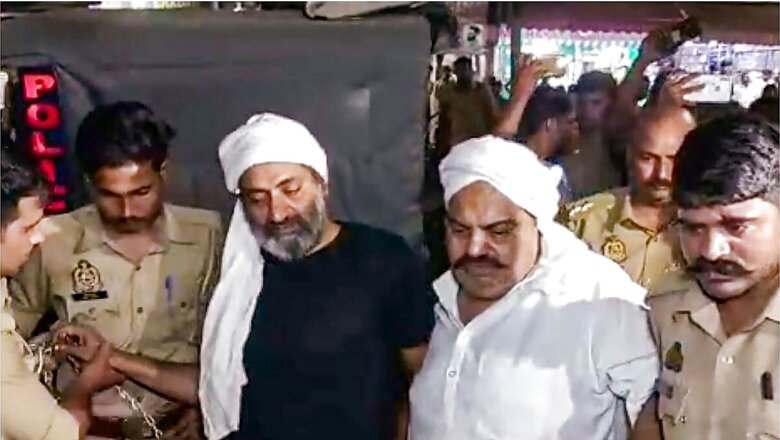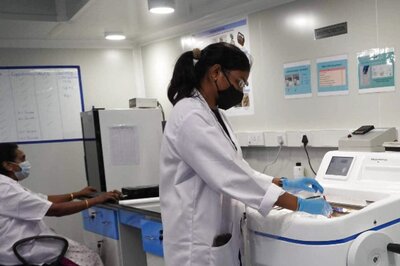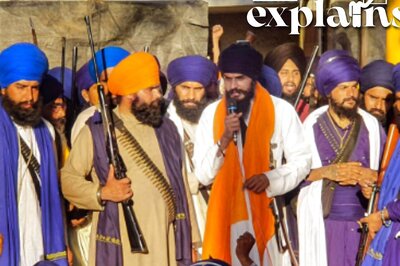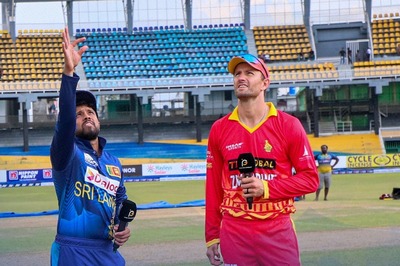
views
This is not a political column. Nor is it about appeasement or otherwise. Neither it is about religion and communalism. It is about a serious concern for due process of law as guaranteed by the Constitution. It is about the attempt to glorify summary justice demolishing the rule of law. It is about the fatal consequences of ‘romanticising’ Encounter Raj. It is about the damning nexus between politics and criminals. It is about the dismal state of our dilatory judicial process. And finally, it is about the increasing servility of the police and other investigative agencies to their political masters.
The immediate context of this column, expectedly, is about the dramatic murder in full public view of dreaded don Atiq Ahmed and his brother Ashraf, surrounded by the police meant to protect them, even as Atiq had appealed to the Supreme Court for protection since he felt his life was in danger ‘after’ his arrest. It does not matter that Atiq is a Muslim. There are as many Bahubalis who are Hindus, or of other religions, against whom there are dozens of cases for heinous crimes. Criminals are criminals and have no caste or creed in the eyes of the law.
It is undeniable that Atiq Ahmed was an unrepentant criminal, with over 100 cases against him. But it is also pertinent to ask how he escaped the law for so long. What were the forces that nurtured, supported, and even endorsed his criminal deeds, and protected him? The Samajwadi Party (SP) and Apna Dal party have much to answer on that question; the former made him a candidate for the Lok Sabha election in 2004, and the latter gave him a ticket for an MLA seat in 2002, in spite of his known credentials of a mafia don, simply because he could guarantee electoral dividends. On other occasions, he fought as an Independent, but could have hardly done so without the covert support of certain political parties.
However, are the SP and the Apna Dal the only parties guilty of benefitting from the nexus between crime and politics? Look around the political landscape across the country and you will see that there is hardly any political party worth its name that is not similarly guilty. Look at the statistics of the current Parliament also, to know how many of our elected representatives, on both sides of the aisle are facing cases for crimes, including dacoity and murder. Most recently, in Bihar, the Jail Manual was amended to enable, as everyone in the state seems to know, an infamous don—who (by the way) is a Hindu and serving life sentence in jail—to be released prematurely, in order to benefit one of the leading components of the currently ruling alliance, since he can, out of the fear he invokes, bring in votes.
Encounter killings are often lauded by common citizens. They give the impression of ‘zero tolerance’ towards crime and project a strong government that is determined to pursue the end goal, irrespective of the means. There is a reason for this. Our jurisprudence is based on the principle that nine criminals can go free, rather than one innocent pronounced guilty. This naturally involves the prosecuting authorities to produce sustainable evidence before the courts to convict an accused. This process allows criminals with influence, good lawyers, political backing, money, intimidated witnesses, and the loopholes within the law, to escape conviction, or even be declared innocent, on the basis of shoddy police investigation, the convenient reluctance of the prosecution to pursue the case diligently and competently, and compromised judicial officers. The entire process can take years—often decades—to come to fruition, until then the criminal is either out on bail, or pursues his criminal activities with impunity from inside the jail, and even gets elected to the state Assembly or Parliament. No wonder the common person feels that encounter killings are a much faster and more effective way to tackle crime.
But there is a serious problem in this kind of justice. If encounter killings and summary justice acquire legitimacy, what prevents the state from using them even against the innocent, or to settle scores against opponents? Those who laud this kind of action will regret it when, without recourse to the due process of law, they become the victims. ‘Bulldozer’ justice against the allegedly guilty, immediately and without due notice, or an opportunity to prove themselves innocent before the law, is yet another growing example of this excess. During the Emergency in the 1970s, the middle class initially was its biggest supporter. But soon enough, its members realised that when the rule of law is removed between crime and punishment, no one is safe. An enthusiastic supporter of the Emergency I personally knew was left shattered when one of his young nephews was sterilised (nasbandi) as punishment for travelling ticketless on a bus.
Our police system is in need of a serious overhaul. The effortless ease with which even senior police officers become willing handmaidens of their political masters, and jettison their bounden duty to impartially uphold the law, has assumed dangerous proportions, irrespective of which government is in power. Long-awaited police reforms which insulate the upholders of law and order from political interference, and ensure the independence of investigative agencies, need to be implemented urgently. A rogue state and a compliant police system are a lethal cocktail against the democratic rights of citizens guaranteed under the Constitution.
We say with legitimate pride that we are the world’s largest democracy with a democratic Constitution. Criminals deserve speedy and exemplary punishment, but not by circumventing the rule of law guaranteed by that very Constitution. I am happy that a judicial enquiry has been instituted in the murder of Atiq, and that the National Human Rights Commission (NHRC) has also issued notice to the UP government in this regard. One can only hope that the truth will impartially and credibly prevail, for otherwise the consequences can be ominous.
The author is a former diplomat, an author and a politician. The views expressed in this article are those of the author and do not represent the stand of this publication.
Read all the Latest Opinions here




















Comments
0 comment